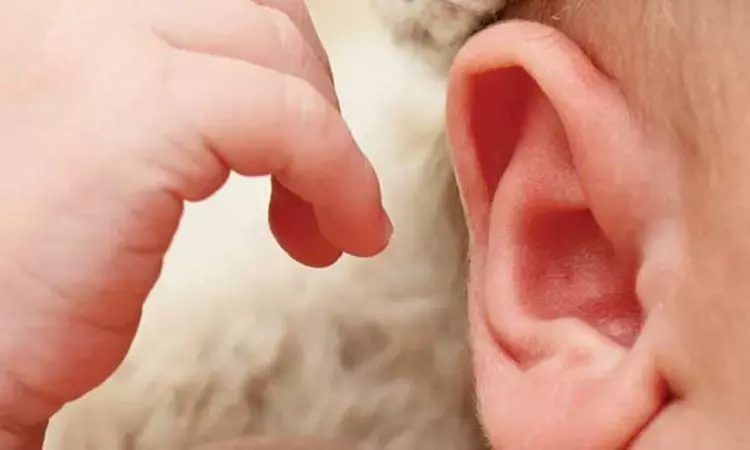- Home
- Medical news & Guidelines
- Anesthesiology
- Cardiology and CTVS
- Critical Care
- Dentistry
- Dermatology
- Diabetes and Endocrinology
- ENT
- Gastroenterology
- Medicine
- Nephrology
- Neurology
- Obstretics-Gynaecology
- Oncology
- Ophthalmology
- Orthopaedics
- Pediatrics-Neonatology
- Psychiatry
- Pulmonology
- Radiology
- Surgery
- Urology
- Laboratory Medicine
- Diet
- Nursing
- Paramedical
- Physiotherapy
- Health news
- Fact Check
- Bone Health Fact Check
- Brain Health Fact Check
- Cancer Related Fact Check
- Child Care Fact Check
- Dental and oral health fact check
- Diabetes and metabolic health fact check
- Diet and Nutrition Fact Check
- Eye and ENT Care Fact Check
- Fitness fact check
- Gut health fact check
- Heart health fact check
- Kidney health fact check
- Medical education fact check
- Men's health fact check
- Respiratory fact check
- Skin and hair care fact check
- Vaccine and Immunization fact check
- Women's health fact check
- AYUSH
- State News
- Andaman and Nicobar Islands
- Andhra Pradesh
- Arunachal Pradesh
- Assam
- Bihar
- Chandigarh
- Chattisgarh
- Dadra and Nagar Haveli
- Daman and Diu
- Delhi
- Goa
- Gujarat
- Haryana
- Himachal Pradesh
- Jammu & Kashmir
- Jharkhand
- Karnataka
- Kerala
- Ladakh
- Lakshadweep
- Madhya Pradesh
- Maharashtra
- Manipur
- Meghalaya
- Mizoram
- Nagaland
- Odisha
- Puducherry
- Punjab
- Rajasthan
- Sikkim
- Tamil Nadu
- Telangana
- Tripura
- Uttar Pradesh
- Uttrakhand
- West Bengal
- Medical Education
- Industry
Intranasal surfactant does not improve outcomes in children with otitis media: Study

USA: A recent study has suggested that intranasally administered surfactant (OP0201) does not improve clinical outcomes in young children with acute otitis media (AOM). Further studies are needed among children with persistent middle-ear effusion.
Acute otitis media is the most frequent cause for children to be prescribed antimicrobial treatment. Surfactants are naturally occurring substances that may restore the function of the eustachian tube and potentially enhance AOM resolution. Gysella B. Muniz, UPMC Children's Hospital of Pittsburgh, Primary Care Center, Pittsburgh, PA, and colleagues aimed to evaluate the safety, tolerability, and efficacy of 20 mg per day intranasal OP0201 as an adjunct therapy to oral antimicrobial agents for treating AOM in children with 6 to 24 months of age.
For this purpose, the researchers designed a phase 2a, single-center, double-blind, randomized, placebo-controlled, parallel-group clinical trial. The study included 103 children aged 6 to 24 months with AOM. They were randomized to receive either OP0201 or a placebo twice daily for 10 days. All children received amoxicillin-clavulanate 90/6.4 mg/kg per day in 2 divided doses for 10 days. The researchers managed the participants for up to 1 month.
Post randomization visits occurred between days 4 and 6 (visit 2), days 12 and 14 (visit 3), and days 26 and 30 (visit 4). Primary efficacy endpoints were resolution of a bulging tympanic membrane at visit 2 and resolution of middle-ear effusion at visit 3.
The researchers found no clinically meaningful differences between treatment groups were apparent for primary or secondary endpoints. Also, they identified no safety concerns.
"In young children with AOM, intranasally administered surfactant (OP0201) at the dose evaluated did not result in improved clinical outcomes," wrote the study authors. "Further research, including dose-ranging studies, may be warranted among children with persistent middle-ear effusion."
Reference:
The study titled, "Intranasal Surfactant for Acute Otitis Media: A Randomized Trial," is published in the journal Pediatrics.
Dr Kamal Kant Kohli-MBBS, DTCD- a chest specialist with more than 30 years of practice and a flair for writing clinical articles, Dr Kamal Kant Kohli joined Medical Dialogues as a Chief Editor of Medical News. Besides writing articles, as an editor, he proofreads and verifies all the medical content published on Medical Dialogues including those coming from journals, studies,medical conferences,guidelines etc. Email: drkohli@medicaldialogues.in. Contact no. 011-43720751


